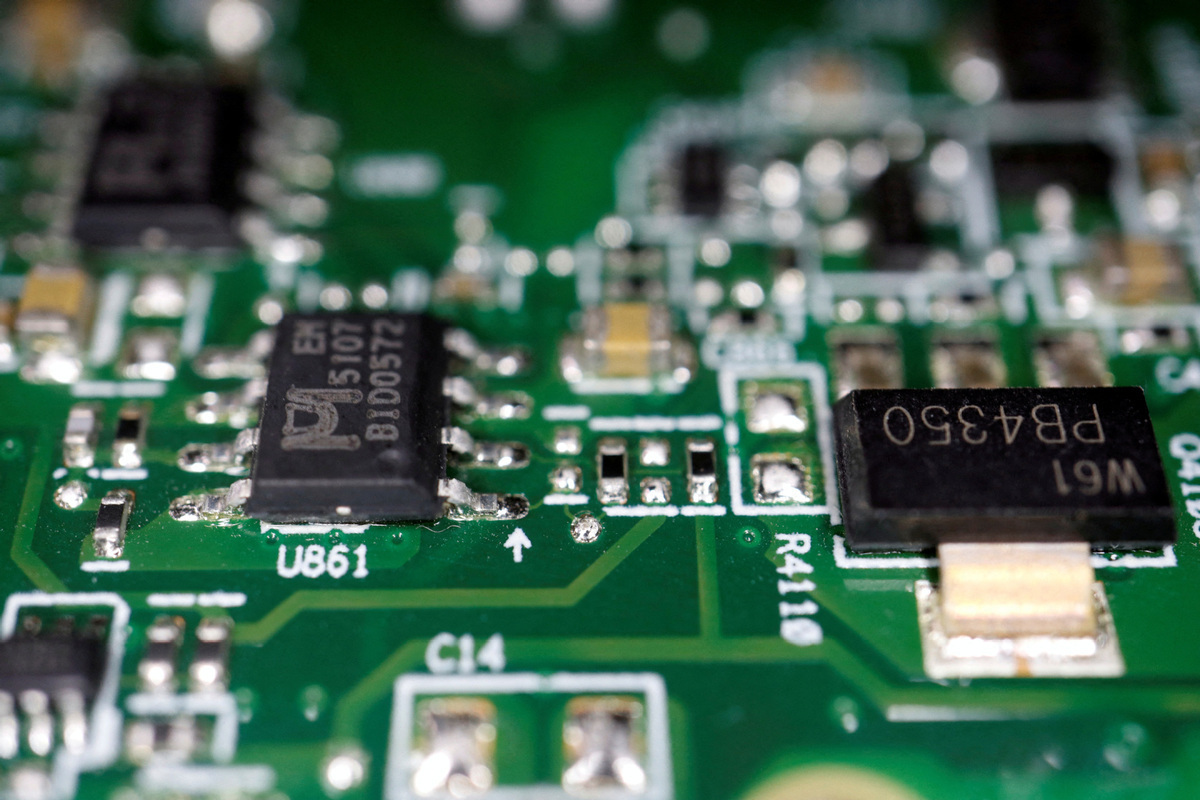
China firmly opposes Japan's export controls on 23 types of chip-making equipment, and the restrictions will undoubtedly hurt the global semiconductor industry and backfire on Japan's chip sector, officials and experts said on Tuesday.
The comments came after the Japanese government unveiled the export control measures on Tuesday, aligning its trade rules on technology with the push by the United States to curb China's ability to make advanced chips.
The Japanese move is an abuse of export control measures and a serious departure from free trade and international economic and trade rules, a spokesperson for the Ministry of Commerce said in a statement.
China reserves the right to take measures to resolutely safeguard its legitimate rights and interests, the spokesperson added.
While Japan sought public opinion on the export controls in recent months, many Chinese organizations such as the China Semiconductor Industry Association and Japanese industry groups and enterprises submitted comments to the Japanese government.
But the Japanese government did not respond to the reasonable demands of the industry, the spokesperson said, adding that the curbs will seriously harm the interests of Chinese and Japanese enterprises, seriously damage the economic and trade cooperation relationship between China and Japan, and disrupt the global semiconductor industry.
Zhang Wei, vice-president of the Chinese Academy of International Trade and Economic Cooperation, said that Japan's export control measures are contrary to market rules and will cause shocks to industrial development.
"Cooperation on semiconductors is one of the most representative examples of mutual benefits from China-Japan economic and trade ties," Zhang said.
The Chinese mainland is the largest export destination for Japanese semiconductor equipment manufacturers. In 2022, such exports from Japan to the mainland hit 820 billion yen ($5.9 billion) — exceeding 30 percent of Japan's total chip-making equipment exports and almost double the amount of US exports in the same sector to the mainland, according to data provided by the Chinese trade academy.
For major Japanese chip equipment makers, the mainland market contributes to about 20 to 30 percent of their sales revenue, Zhang said.
Amid the export control measures, Japanese company Tokyo Electron expected its annual revenue to fall 23 percent year-on-year, the Financial Times reported.
Tu Xinquan, dean of the China Institute for WTO Studies at the University of International Business and Economics in Beijing, said, "China and Japan have close economic and trade ties, which indicates that there is no state of emergency between the two countries in terms of international relations, and there is no reason for Japan to invoke national security exceptions to defend its export control measures.
"The chip manufacturing equipment that Japan now exports to China is not in any way related to national security," Tu said. "This is a purely commercial activity as part of global production and trade."
Wei Shaojun, a professor of integrated circuits at Tsinghua University, said sales in the past year of US semiconductor equipment companies in the Chinese market have been constrained by the US government and suffered heavy losses.
"As Japan restricted its exports of advanced semiconductor equipment to the Chinese mainland, Japanese companies are also bound to suffer losses," Wei said.

